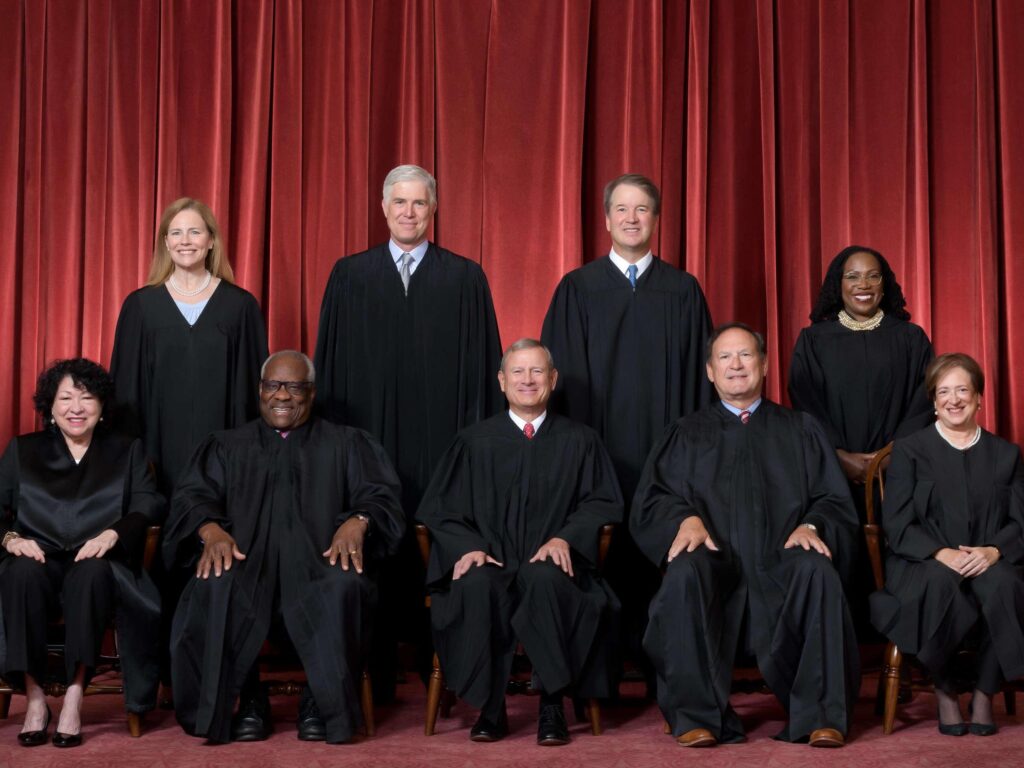The U.S. Supreme Court has agreed to review a contentious Idaho law that prohibits transgender athletes from participating in women’s sports. The case, which has drawn national attention, raises critical questions about transgender rights, gender equality, and the boundaries of state authority in regulating athletic competition. As the court prepares to hear arguments, advocates on both sides await a landmark decision that could have far-reaching implications for similar laws across the country.
Supreme Court Set to Hear Challenge on Idaho Transgender Athlete Ban
The highest court in the United States has agreed to hear arguments concerning Idaho’s controversial law that bans transgender athletes from competing in women’s sports. The legislation, which has sparked nationwide debate, raises critical questions about the balance between inclusion and fair competition in scholastic and collegiate athletics. Supporters argue the law protects female athletes’ opportunities, while opponents contend it discriminates against transgender individuals and violates their civil rights.
Key points under examination include:
- Legal Precedents: How previous court rulings on transgender rights might influence the decision.
- Impact on Athletes: The effects on transgender athletes’ participation and well-being.
- State vs. Federal Authority: The extent to which states can regulate gender eligibility in sports.
| Stakeholders | Position | Concerns |
|---|---|---|
| Supporters | Favor enforcement | Fairness in women’s sports |
| Opponents | Advocate repeal | Equal rights and discrimination |
| Legal Experts | Mixed views | Constitutionality & scope |
Legal Arguments Focus on Civil Rights and Equal Protection Claims
Legal debates surrounding the Idaho legislation prominently emphasize allegations that the law violates civil rights and the Equal Protection Clause of the Fourteenth Amendment. Advocates for transgender athletes argue that the statute unfairly discriminates based on gender identity, effectively excluding transgender women from participating in women’s sports. They assert that such exclusion not only infringes on constitutional guarantees but also perpetuates stigma and marginalization. Legal briefs submitted to the Supreme Court underscore claims that the law denies transgender individuals the same access to athletic opportunities afforded to their cisgender peers, raising fundamental questions about fairness and equality under the law.
Opponents of the law contend it:
- Creates a legal precedent for discrimination against transgender individuals in other public spheres.
- Fails to provide sufficient justification grounded in competitive fairness or safety.
- Conflicts with federal civil rights protections by imposing gender-based restrictions.
The state of Idaho, however, defends the legislation as a necessary measure to preserve fairness in women’s sports competitions. In their filings, state attorneys maintain that the policy serves an important governmental interest and is narrowly tailored to achieve that aim without broader constitutional violations. This foundational disagreement positions the Supreme Court’s upcoming review as pivotal in shaping the future balance between civil rights protections and state regulatory powers related to gender identity.
| Claim | Proponents’ View | Opponents’ View |
|---|---|---|
| Equal Protection | Law ensures fair competition in women’s sports | Law discriminates against transgender athletes |
| Civil Rights | Protects rights of cisgender female athletes | Violates transgender individuals’ rights |
| Legal Precedent | Supports state’s authority to regulate sports | Sets dangerous precedent for discrimination |
Impact of Ruling Could Reshape National Policies on Transgender Participation in Sports
The Supreme Court’s decision to review Idaho’s ban on transgender athletes in women’s sports could serve as a pivotal moment, potentially redefining how states navigate this complex and contentious issue. Advocates argue that affirming such laws might reinforce protections for cisgender female athletes, emphasizing fair competition and biological distinctions. Conversely, opponents warn that upholding the ban could marginalize transgender individuals, exacerbating exclusion and discrimination in athletic programs nationwide.
Should the court rule in favor of Idaho’s legislation, the ruling may prompt a wave of similar laws across other states, significantly altering existing policies and prompting legal challenges. Key factors likely to influence outcomes include:
- Equal Protection clauses: How constitutional guarantees are interpreted in relation to transgender rights.
- Scientific evidence: The role of biological and physiological data in shaping eligibility criteria.
- State vs. federal authority: Balancing localized policy-making against overarching civil rights protections.
| Potential Outcome | Implications for States | Impact on Transgender Athletes |
|---|---|---|
| Ruling in favor of Idaho | Increase in restrictive legislation | Reduced participation opportunities |
| Ruling against Idaho | Strengthening of inclusion policies | Greater access and acceptance |
| Case remanded | Further legal refinement needed | Uncertain implications pending review |
Advocates Urge Clear Guidelines to Balance Inclusion and Competitive Fairness
Proponents pushing for comprehensive policies emphasize the need to protect both the rights of transgender athletes and the integrity of women’s sports competition. They argue that well-defined regulations should account for physiological differences without excluding transgender individuals outright. Key advocacy groups are calling on lawmakers and sports organizations to engage in transparent dialogue with medical experts, athletes, and civil rights leaders to establish equitable standards that uphold inclusion while maintaining fairness.
Essential elements proposed by advocates include:
- Clear criteria on hormone therapy duration and impact assessments
- Age-specific and sport-specific guidelines reflecting competitive balance
- Regular review mechanisms to adapt policies based on evolving science
- Educational initiatives to foster understanding and reduce stigma
| Policy Focus | Advocated Benefit |
|---|---|
| Medical Oversight | Ensures eligibility is based on verified physical criteria |
| Fair Competition | Preserves competitive integrity for all athletes |
| Inclusivity Training | Builds a supportive environment for diverse participants |
To Wrap It Up
As the Supreme Court prepares to review Idaho’s law barring transgender athletes from competing in women’s sports, the decision is poised to have significant implications for similar legislation nationwide. Advocates on both sides await the ruling, recognizing its potential to shape the future of transgender rights and athletic participation across the country. The case underscores the ongoing national debate over identity, fairness, and inclusion in competitive sports.





